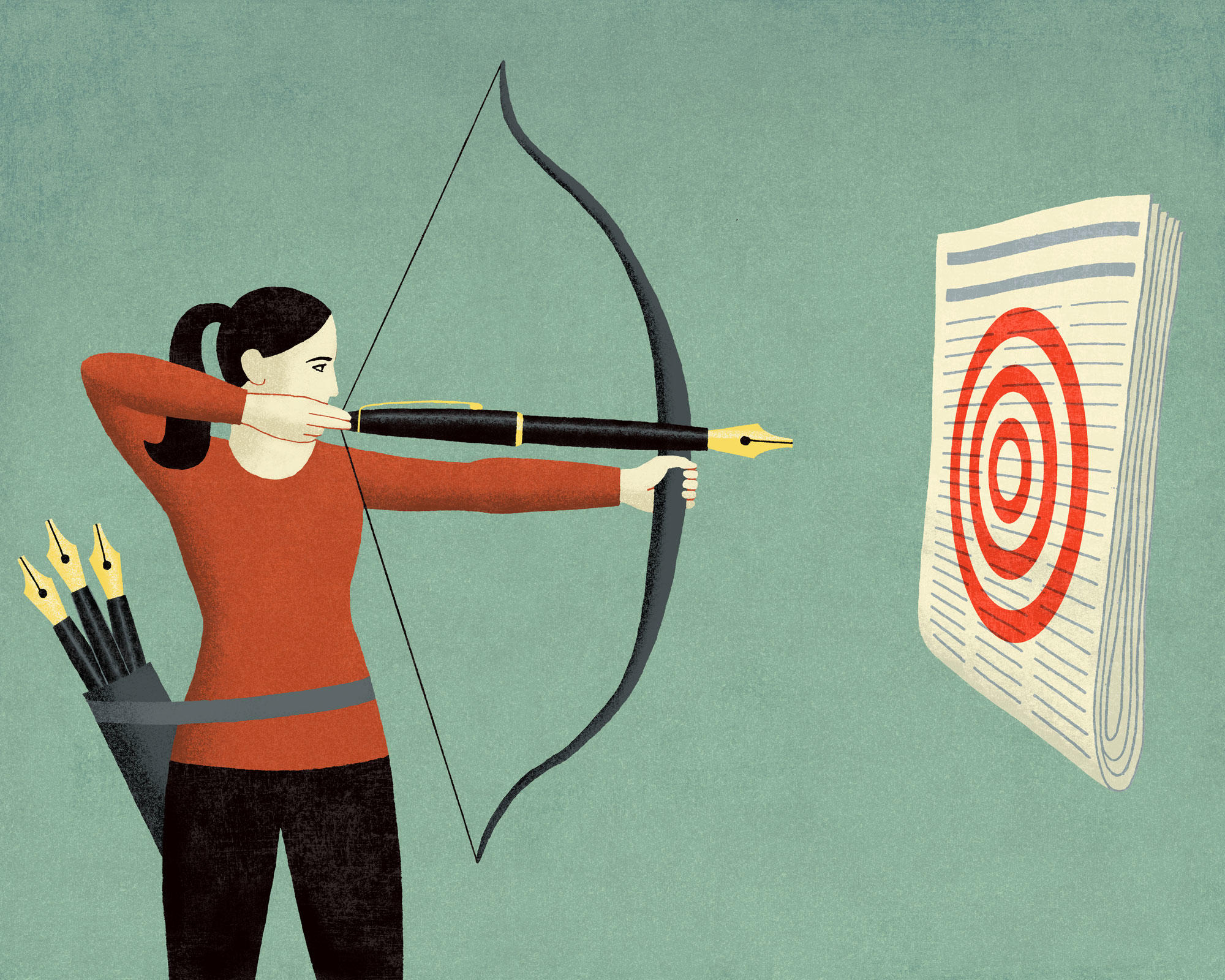What are the consequences if I write something on race at Columbia?” a student asked the panel at a recent discussion titled “Going Public: Writing and Publishing the Op-Ed.” The overflow crowd of two hundred undergrads in Schermerhorn 501 was all ears. So was Glenn Michael Gordon ’10SOA, the assistant director of the Undergraduate Writing Program at Columbia and the event’s creator and host.
The afternoon had been an attention grabber from the get-go. You might have thought that students raised on the Internet would either a) view the traditional op-ed as passé, its power diluted in a sea of opinionated tweets and blog posts, or b) retreat from public discourse altogether, for fear of nasty comments and forum trolls. Yet the turnout said otherwise, as did Gordon’s introductory remark that, since 2011, when the first-year composition class University Writing began assigning op-eds, students have published more than a hundred of these essays, in places like the New York Daily News, the Baltimore Sun, USA Today, the Huffington Post, Army Times, the Atlantic, Salon, the South China Morning Post, and a bundle of hometown papers.
The panel was made up of five sophomores who had taken University Writing the previous semester and subsequently published their op-eds: Madison Cox linked the scarcity of female engineers to childhood gender socialization in her piece for the Washington Post; Adam Croxton, a US Air Force veteran who was raised in a Mississippi trailer park, published an op-ed in the Columbia Spectator on student debt and being the first in his family to attend college; songwriter Tinatin Japaridze, in the Moscow Times, told of how entering the Eurovision Song Contest after the 2008 Russo-Georgian War laid bare her divided loyalties between Russia, where she grew up, and her native Georgia; Kira LeBron, opining in the Peoria Journal Star, urged that paper’s readership to consider the underlying causes of unrest in Ferguson and Baltimore; and Josef Starc, a product of the oft-criticized Oakland public school system, where teachers were negotiating a new contract, wrote in praise of his high-school education in the Oakland Tribune.
“In University Writing, students write four essays, the last of which is the op-ed,” says Gordon. “For the first three, you’re working on building an argument. By the time you write your op-ed, you’ve learned to develop your argument and present it within a highly crafted essay.”
Gordon had the panelists read parts of their op-eds aloud, and demonstrated the ways in which all the pieces answered the four questions that editors ask when considering an op-ed: Why you? Why us? Why this? Why now?
Gordon, who is the former editor in chief of Readersdigest.com, strongly encourages students to submit their op-eds for publication, noting that “the word ‘published’ still has a lot of cachet.” He told the audience: “It never hurts a CV to have publications on it — it shows a level of excellence and striving.”
This comment was in response to the student who asked about the risks of writing an op-ed about race. The student, who was white, posed a hypothetical in which, two years after publishing his op-ed, “I apply for a job at Goldman Sachs and they Google my name and say, ‘This guy’s a racist: we can’t hire him.’”
There was a three-second pause before a wave of nervous laughter welled up from the audience and rolled lightly over the room. Gordon jumped in. “You know what? I think partially there’s laughter because it’s the laughter of recognition,” he said. “A lot of people have anxiety about putting themselves out there — putting a strong opinion out there. And there is some truth to the idea that often your biggest critics are people who haven’t even read your op-ed and just react to what they think it’s about. So I understand the nature of your question.”
Thus Gordon rescued both the audience (from its assumption that the student had just implied he was racist) and the student (from further snickers). He then asked the panelists if they’d like to address the student’s concern.
“The onus is on you to have a well thought out, clearly communicated piece, so that it can’t be misinterpreted,” said Croxton, the Air Force veteran. “If you hold a controversial view, stick to it. But make sure that it’s smart. I think if you shy away from something that’s controversial, you’re not doing yourself or journalism justice.”



